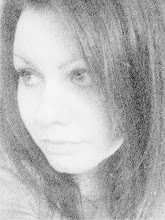 There's this tendency I have, to look at things from a different perspective which in extension makes me rather pretentious, not use the term stuck up. But I'm not. I just lack the attentionspan and intrest in pitiful issues. I concern myself with the compliexity rather than a straight forward answer, often, once you look at a problem from different angles it turns out you had the answer all the time, you just didn't look at it the right way.
There's this tendency I have, to look at things from a different perspective which in extension makes me rather pretentious, not use the term stuck up. But I'm not. I just lack the attentionspan and intrest in pitiful issues. I concern myself with the compliexity rather than a straight forward answer, often, once you look at a problem from different angles it turns out you had the answer all the time, you just didn't look at it the right way.The practical concequences of this is that when you talk to me I might seem aloof and uninterested, and with that comes intimidating. That always suprises me a bit, I try to listen, and then tell you what it is that I hear from an idealistic perspective. You're babbling uncontrolably, I see that you lack structure, and if you seem uncomfortable with that I try to help you find a structure, if you seem happy with it, I try to encourage you to hold on to the float. I can't do that if you're snowed in on the detail of that your bookcase is too far to the left. It's a sifting function, I'm a tool for you to pour unfiltered words through and hopefully I can help you come up with a plan or an explaination in the other end.
At the same time it demands something too. You have to have the mental ability to hear what I'm saying when I reply, and you have to have the ability to move on. I've seen plenty of good people being too stuck in the past. Moving on creates an identity crisis, not in all a very vast one, but unless you understand that moving on changes you, you're not a fixed being, and accepting what you become can be difficult. It's not even sure that you even like the person you're transforming into.
We all identify ourselves with different pin pointed areas in ourselves. Things that don't require much power of thought. When meeting new people, what do they usually ask? Those questions are indicators of what we judge people by, your age, your marital status, your housing arrangement. When you're a child it's fairly easy, "what's your favorite colour, your favorite toy, your favorite game?" the older we get and the more life didn't turn out as simple as we had hoped every answer to the question of "how old are you, what do you do, are you married, do you have children?" also reflect a choice we made, or a choice we weren't allowed to make and the answers can become full of guilt and drowned dreams. Even though we're asked the same thing! Compare, how do you react to a 17 year old that's 8 months pregnant to a 37 year old that's 8 months along. Are they similar people, are they able to share the same experiance?
Conditions change, and our idea of ourselves should change accordingly. With everything external being transient it's even more important to know who you are in your core, who you are when you can't answer the polite questions asked. You should be able to identify yourself without measurable indicators. Who's the director without the job? Who's the housewife without the family? Who's the 90 year old without an age?
So, basically, if you define your identity less by these external easy to tell factors, and see who you are without them, the transition from one group to another won't be so difficult. Not even the argumen of "when I look in the mirror I don't recognize myself" holds up as you age, you always look slightly different, you experianced it when you went through puberty as well, didn't you? The expectation can't be to be stagnant, but always evolving and changing. And that the only thing constant is change is hardly a new concept.
What I'm trying to get at is that when it feels like the whole world is collapsing around you and you can't use the same indicators to shape an identity, please remember that those things never added to who you were in the first place.



0 comments:
Post a Comment